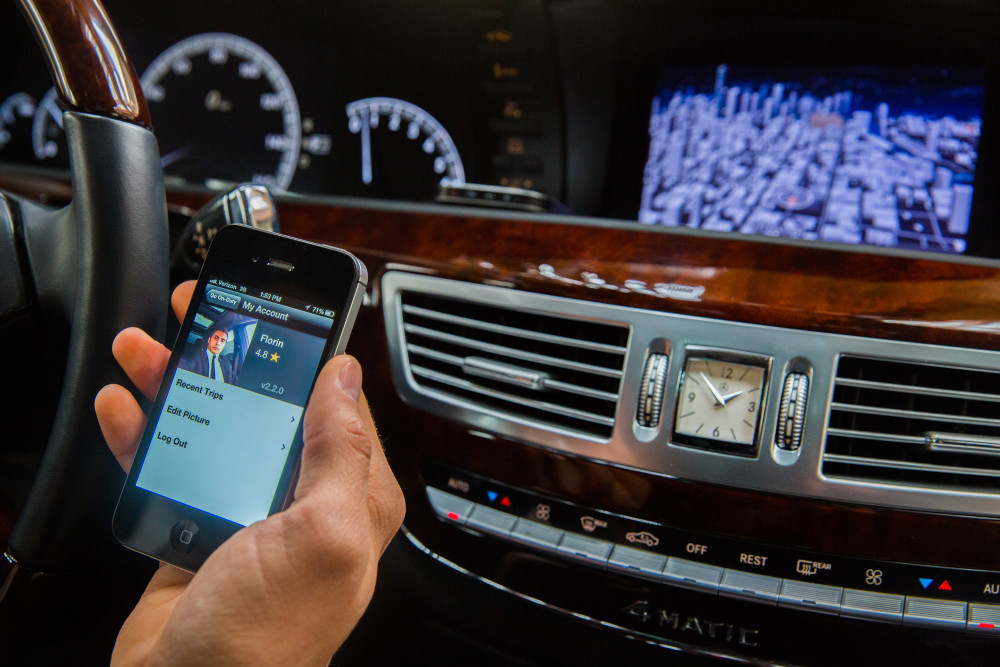By Michelle Quinn
San Jose Mercury News.
Presidential contenders have a lot to talk about on the campaign trail.
The nuclear arms pact with Iran. The Greek economic crisis.
And Uber.
Uber?
If you are running for president, chances are you are going to talk about Uber, whether your spin is boosting entrepreneurship, heralding the creative use of technology or cautioning against the erosion of labor protections.
GOP candidates are evoking these sharing-economy companies to show that they are modern, pro-tech, pro-innovation.
Sen. Ted Cruz, the Texas Republican, has said he wants to be the Uber of presidential candidates.
On Thursday, Jeb Bush, the former governor of Florida and a GOP presidential hopeful, plans to order an Uber to go to Thumbtack, an on-demand technology firm based in San Francisco that links carpenters, painters and others with clients.
But beware the trendy campaign stunt. Holding up Uber as a model of American ingenuity is risky when the company is facing legal challenges over how it treats workers. Likewise, knocking the sharing economy can make a candidate look out of step with the modern world.
“It’s the first election that this is a real part of people’s daily life and an important part of our economy,” said Michael Beckerman, chief executive and president of the Internet Association, which counts Uber, Lyft and Airbnb, the room-listing site, as members. “It’s going to create an interesting voting block of people who understand the opportunities.”
Hillary Rodham Clinton, who is campaigning for the Democratic nomination, jumped into the debate this week. She praised the economic ferment that has been generated by on-demand firms, but she raised concerns about the “gig” economy and the future of work in a speech this week.
Clinton didn’t mention any companies by names, but she did hit hard on some traditional labor themes. “I’ll crack down on bosses who exploit employees by misclassifying them as contractors or even steal their wages,” she said.
Republicans pounced.
Sen. Rand Paul tweeted that “@HillaryClinton’s ideas about Uber and Lyft are out of touch. We need more innovation, not less.”
And so on.
This is, of course, the silly period of the presidential primary campaign, the time in which candidates test ideas to see what resonates with voters and what might be used to differentiate themselves.
Donald Trump has had some success, and some failures, saber-rattling on the issue of the border and immigration. In the 2012 presidential race, Mitt Romney attacked China on the issue of intellectual property theft.
Now it’s Uber’s turn. Depending on who utters the name and how, it can be the shorthand for innovation or the stand-in for evil exploitation.
This isn’t an easy position for the companies, either. The free publicity has some upsides, sure, but it makes them an even bigger target for regulators, elected officials or employment rights lawyer.
But our country is overdue for a discussion about the future of work, the structural problems of the economy and how to support innovation.
“It’s important that candidates pay attention to the growing on-demand economy because it’s important to the future of work,” said Natalie Foster, a fellow at the Institute for the Future. She is former digital director at the Democratic National Committee and founder of Peers, an organization for the sharing economy. “As the on-demand economy grows, so will the freelancer workforce, people who don’t have access to benefits like sick leave, parental leave or workers’ comp since they don’t have traditional employers.”
But candidates may be focusing too narrowly on the issue of employees versus contractors when it comes to firms such as Uber, said Matthew Cowan, chief executive of Breezeworks, a smartphone app to help small-business owners. The problem, he said, is that these new middlemen firms are separating small businesses from a direct relationship with customers.
“If you are underpaid and can’t support your family, does it matter what kind of tax return you file?” he asked. “All the candidates talk about how small business is the backbone of the economy, but these companies are a direct threat.”
It’s an interesting point, and one that I hope gets aired this campaign season.
I’m all for photo ops of candidates ordering an Uber. As long as they ask their driver how their day is going and what they do to keep financially afloat.
___
ABOUT THE WRITER
Michelle Quinn is a business columnist for the San Jose Mercury News.














































































































































































































































































































































































